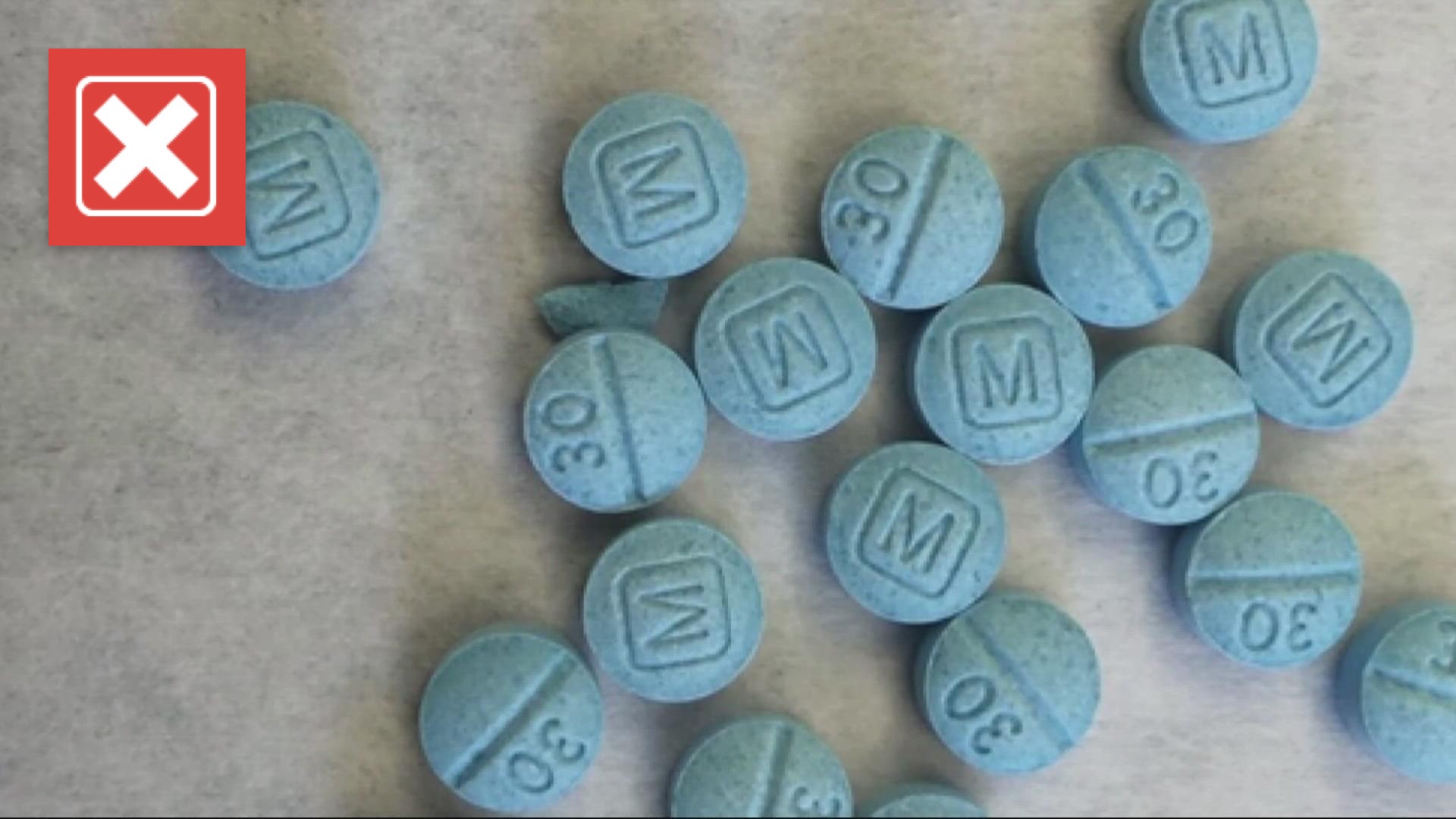PORTLAND, Ore. — A KGW viewer recently emailed to ask if drug dealers can be prosecuted for murder, referencing an incident in which eight people in Portland all died from drug overdoses in rapid succession in May of this year, with several of the deaths linked to fentanyl.
The short answer is that the rules vary heavily by jurisdiction, but the viewer's question referenced an incident in Portland, so to simplify the answer we're going to look at Oregon specifically.
THE QUESTION
If someone fatally overdoses on an illegal drug in Oregon, can the person who sold or supplied the drug be held legally liable for their death?
THE SOURCES
- Prescription Drug Abuse Policy System, Center for Public Health Law Research, Temple University
- The Action Lab at the Center for Health Policy and Law
- Legislative Analysis and Public Policy Association
- U.S. Drug Enforcement Administration
- U.S. Attorney's Office, District of Oregon
- U.S. Attorney's Office, District of Central California
- Oregon House Bill 2797 (2019)
THE ANSWER
No, Oregon law does not allow state or local prosecutors to charge drug dealers with murder, homicide or a similar criminal offense directly tied to the death of a buyer. Federal prosecutors have more options at their disposal, but they may still choose to bring lesser charges focused purely on possession and distribution, even in cases where a user died.
WHAT WE FOUND
The idea of holding drug dealers legally responsible for overdose deaths is a highly fraught topic, and the discussion has become more prominent in recent years, particularly with the spread of fentanyl, which can cause fatal overdoses in very small quantities.
Several states allow for specific criminal charges to be brought against dealers if their buyers or end users fatally overdose. A 2019 dataset from the Health in Justice Action Lab and at the Center for Public Health Law Research at Temple University found that 25 states had "drug induced homicide" or "drug delivery resulting in death" laws on the books. A 2023 study from the Legislative Analysis and Public Policy Association found that the number of states with such laws had grown to 31.
Oregon isn't one of them, although the topic has come up in the state legislature. There was a bill introduced in 2019 that would have created a sentencing enhancement with a mandatory minimum prison sentence for dealers charged with unlawful delivery of a controlled substance if it contributed to someone's death, but the bill stalled out in committee.
Part of the reason drug induced homicide laws are controversial is because, according to critics like the Drug Policy Alliance, the stricter laws undermine Good Samaritan laws, which aim to cut down on fatal overdoses by guaranteeing that people who report an overdose in progress won't later find themselves facing arrest or criminal charges stemming from the incident.
Several news outlets, including the New York Times, Washington Post and Associated Press have looked at cases where drug induced homicide laws caused friends, family or very low-level dealers to get caught up in prosecutions following an overdose death, as well as the debate over whether such laws help with the broader goal of combatting the fentanyl crisis.
Federal charges
Federal prosecutors have the ability to bring charges that, even if they're not specifically murder or homicide, still make dealers directly accountable if their buyers overdose and die.
In one example from last year, federal prosecutors in Orange County, California, charged seven defendants with "distribution of fentanyl resulting in death," which carries a minimum sentence of 20 years to life if convicted, according to a news release from the U.S. Attorney's Office, Central District of California.
One of the advantages of bringing "distribution resulting in death" charges is that they don't require the government to prove that the dealer intended to kill the overdose victim in order to secure a conviction, according to a news release from the St. Louis division of the federal Drug Enforcement Administration.
In a more local example, Portland resident Daniel Weaver was sentenced earlier this year to 12 years in federal prison for distributing fentanyl-laced counterfeit Oxycodone pills that caused a local buyer to fatally overdose. He was only charged with conspiring to distribute, but took a plea deal that included a sentencing enhancement due to the death of the user, according to a news release from the U.S. Attorney's Office, District of Oregon.
But not every federal case goes in that direction, even when the investigation is specifically sparked by the death of a user. In one recent example, federal prosecutors targeted Efrain Roberto Diaz-Rangel in Portland after fentanyl that he supplied contributed to an overdose death. However, he was only charged with possession with the intent to distribute, according to a news release from the U.S. Attorney's Office, District of Oregon.

